The following is excerpted from a 1965 pamphlet celebrating the first one hundred years of the Charles G. Summers, Jr. Canning Company…
Thomas Mann, the author, said “Even when a new century begins it is only we mortals who ring bells and fire off pistols.” Here in New Freedom, Pennsylvania, a new century is beginning for all of us who are the Summers Company, and as the mortals most directly concerned we feel entitled to ring a few bells and fire a pistol shot or two in celebration. We feel fortunate in having our 100-year milestone. From its top we gain perspective on the path we have followed, and perhaps will find a guidepost to our 200th year. Down to earth again, we face the right direction, proud of our past, confident of our future.
It all began 100 years ago when young Charles Green Summers, only 19, went into partnership with his uncle, Thomas B. Summers, at Jessup, Maryland. The canning business was young in America — just beginning to break out of the do-it-yourself-in-the-kitchen operation and to emerge as a fledgling industry. It was an age both of free enterprise and of family participation in business; and since then the Summers name in the canning of quality vegetable has exemplified these characteristics fully.
It is perhaps unique in American business generally and in canning particularly that the heads of the firm for 100 years have borne the name of its founder. It is all the more remarkable that each has actively worked at the job day by day… a tradition contrary to that of the absentee owner.
Progress is Movement
Headquarters of the firm moved from Jessup in 1873 to Baltimore where it remained for half a century. In 1923, as was the case in 1873, the growing pains of the firm demanded more space and a more strategic location; and the final move to New Freedom, Pennsylvania, was made.
For some years after each re-location of Summers’ headquarters, operations were also maintained in the prior location. In 1932, all operations were concentrated at New Freedom, and remain so today.[1965]
Here within 25 miles of the Summers’ plant are the thousands of acres of rich farmland — some owned, some leased and farmed, some contracted for — from which come the field-fresh vegetables for canning.
Strides Forward
Firmly settled at New Freedom, Charles G. Summers, Jr., Incorporated, began to make important strides forward; but not without first meeting a serious set-back. It was the “ill wind that bloweth no man to good” — a fire that destroyed the main plant. Out of the ashes, however, began an era of building, of expansion and improvement that has not stopped since. The main plant was rebuilt in 1932-1933; new warehouses were built in 1939 and 1941; and three more in 1953, 1957 and 1964. A new equipment repair shop came along in 1946 and a new office building in 1948, followed a year later by another processing plant.
All this expansion gives Summers today 30,000 square feet of manufacturing space and more than 100,000 square feet of storage facilities — all covering an area of 10 acres.
From this center of operations in Summers’ 100th year were shipped over one and a quarter million cases of canned products, or 15 cases shipped in 1964 for every single case shipped in 1933! This increase in quantity over the years has been paralleled by the quality of Summers’ products… always a primary concern of management.
The Good Earth Yields Its Wealth
It has always been Summers philosophy that the earth yields its benefits only in proportion to what is put into it. Since the Company’s aim and purpose is to produce the highest quality of vegetables for canning, it has always paid close attention to building soils of high fertility and canning its crops at the peak of freshness. Thus, the 4500 acres surrounding the plant at New Freedom that are leased by the Company are farmed by Summers’ men under rigid controls of good agriculture; and the crops from the other 1500 acres farmed by individual owners on contract are purchased not by run-of-the-field standards but by grade only.
From the richly yielding fields to the most modern of canning equipment at the plant is but a matter of minutes… and crop after crop find its way quickly and expertly into Summers’ Superfine-labeled containers. On the way, they must pass the watchful eye of the United States Department of Agriculture’s own “Inspector-in-Residence”… an on-the-spot inspecting system first begun at New Freedom long ago in 1946. Is it any wonder that the Summers reputation for quality canned products is as high as experience is long?
A Summers Pledge
As proud as we are of our products, we are no less proud of our long relationships with people who make our success possible. We cherish the thought that one of our workers, John F. Heck, stayed with us for 71 years; we cherish the thought that among the 45 brokers who handle our label one has worked with us for 52 years and one-third for more than 25 years! We are grateful for their loyalty, and as we enter our second 100 years, we pledge them our continuing friendship, and offer them our resolution to maintain in the future the same high standards we have lived by in the past.
Notes:
Thomas S. Summer, Jr. succeeded his mother Caroline S. Summers as president of the company in the 1960s working closely with his brother Dwight Summers, most of their children also worked for Summers Canning in the 1970s or early 1980s. The Summers Canning Company provided a first, second or sometimes a lifetime job of hundreds of local youth. During World War II Thomas S. Summers, Jr. worked side-by-side with German Prisoners of War, but that is another story. The company was sold to Hanover Foods in 1984. The Superfine Brand can still be seen on store shelves today.

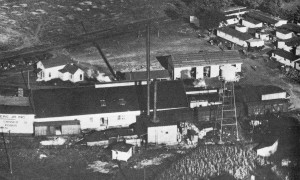
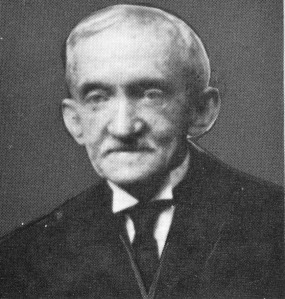
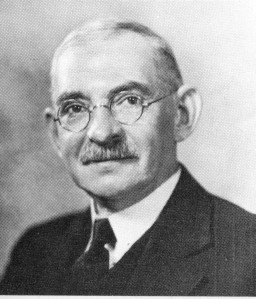
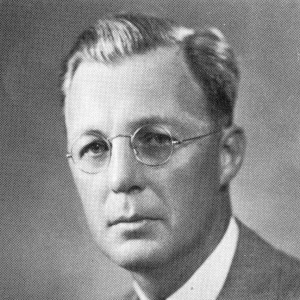
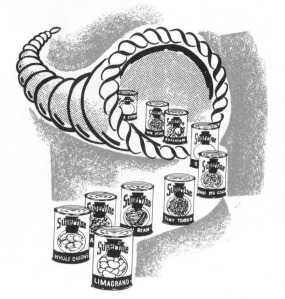
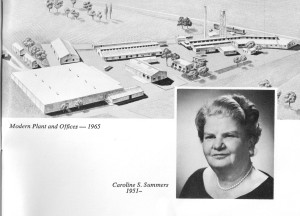
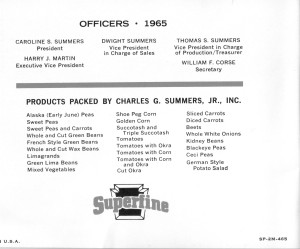
Bruce, Very interesting… I did realize how much of your heritage was in manufacturing & agriculture. I checked my pantry, as I thought the name Superfine sounded familar… and there are some pretty old cans in there… but it was not it was only Finest vs Super Fine… there are some Hanover cans, so maybe they came from the New Freedom.
LikeLike
Recorded more audio tape on the Summers Canning Co. over the weekend. Polish families from Baltimore spent the summers in New Freedom picking peas, green beans then tomatoes. During World War II German Prisoners of War also worked in the Summers Canning Company, though they were not allowed to work on the food processing machines. A temporary prisoner of ward encampment was constructed on the grounds of a Play Ground/Park in a neighboring small town. As a 15 year old my father worked side by side with the German prisoners.
LikeLike
My grandfather, Carl McAllister, Jr., was in the grocery business in Jacksonville, FL, for many years. First, he owned his own grocery store in then Garden City, FL, just north of Jacksonville beginning in the 1930’s. Later he went with the Banner Food Store chain. I have a white metal tray (12 x 18) that produce was either set in to weigh or display that has the logo of Charles G. Summers and Superfine on it. I never knew the history behind this company until today when I Googled it. My “Papa Mac” went on to become General Manager of all the Banner Food Stores in the area working in the offices of the warehouse located in northwest Jacksonville off Edgewood Avenue. I have served up macaroni and cheese and also stuffing in this big pan for family gatherings. My uncle bought the Banner Food store out from my grandfather and worked the grocery business for quite a few years himself. Email: Rhondakb16@gmail.com
LikeLike
Thanks Rhonda. What a great story. I have two white pans that match yours. One is the same size and one is smaller. I will ask my Dad about Banner Food.
Bruce
LikeLike
Hi Bruce. Today at a flea market I found a white tray – 12″ long x 7.5″ wide x 2″ deep with the Superfine Pennsylvania canned vegetables logo on it (words and keystone in green, Superfine in red). I think it is porcelain and in very good condition. Can you tell me when these were produced and what the use was? I was so excited to find your post as I haven’t found even an image of this tray anywhere else!
LikeLike